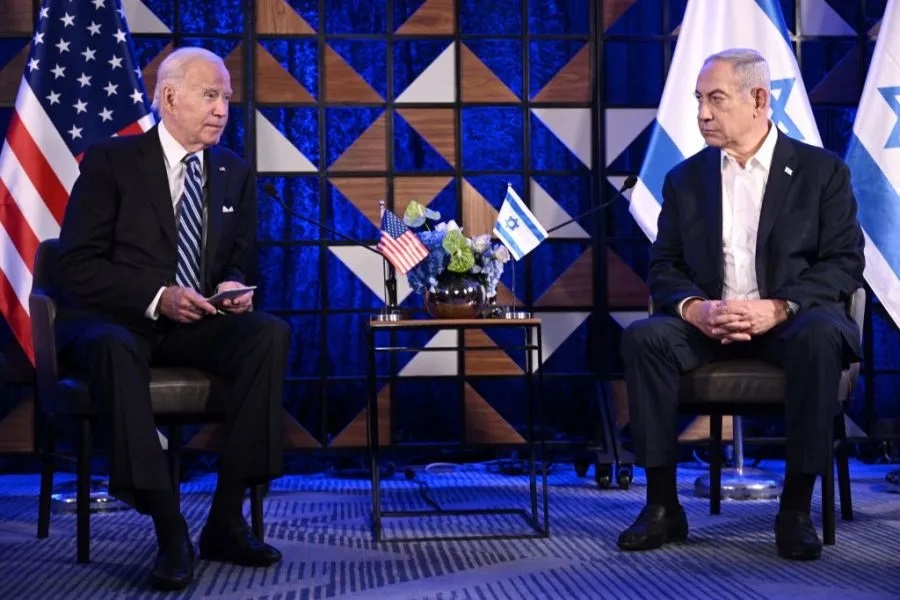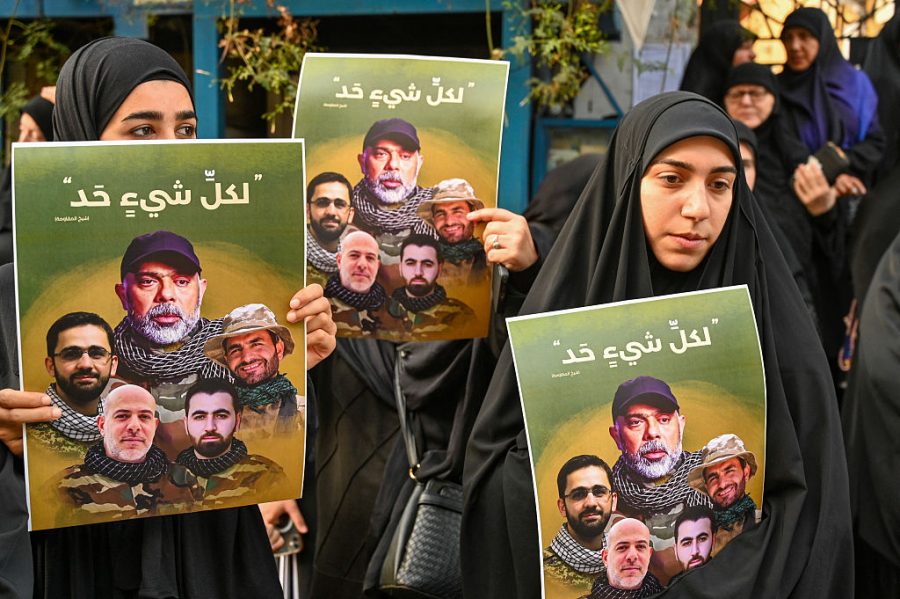The White House wants Israel to allow more aid into Gaza and implement humanitarian ceasefires within thirty days. If they don’t, the US has threatened to withhold military aid to the country. That’s according to a leaked letter sent over the weekend by secretary of state Antony Blinken and defense secretary Lloyd Austin in which they set out a short but punchy list of demands.
The letter’s unusually harsh tone seems to be motivated by domestic pre-election pressure on the Democratic Party. President Joe Biden’s fractured relationship with Israeli prime minister Benjamin Netanyahu has also played a part — which is why the letter was addressed to defense minister Yoav Gallant and minister of strategic affairs Ron Dremer rather than to Netanyahu himself.
There’s no guarantee that simply allowing more aid into Gaza would make much difference
America is concerned about a humanitarian crisis in Gaza and about the fall in aid last month. Their concerns were made worse thanks to calls by the retired IDF major general Giora Eiland for Israel to restrict aid to northern Gaza in order to apply more pressure on Hamas. Netanyahu denied that this plan has been adopted by the Israeli government, but Biden’s lack of trust in anything Netanyahu has to say complicates matters considerably.
Realistically though, the fact remains that there’s no guarantee that simply allowing more aid into Gaza would make much difference. There are great difficulties affecting the distribution of aid supplies in the Strip — in part thanks to local armed gangs and Hamas terrorists seizing or looting supplies. Without addressing this problem, it will remain difficult to get the aid to where it needs to go.
The US is also demanding that Israel allow the Red Cross to visit Palestinian detainees and that the Israeli Knesset halts a bill that would severe ties with the United Nations relief and works agency for Palestine refugees (UNWRA). America suspended its funding of UNWRA in January until March 2025 after it was alleged that members of the organization participated in the October 7 massacre and that some of its employees are also active members of the terror organizations Hamas and Palestinian Islamic Jihad. There have been deep concerns about the antisemitic and radical content taught by UNWRA in Palestinian schools too. Nevertheless, Biden still considers the organization indispensable.
America’s demands have been made for the benefit of domestic voters. Several Arab-American and Muslim lobby groups have already withdrawn their support for Kamala Harris over America’s policy on Israel and the decision to send aid. The administration’s list of demands might not actually result in an embargo being implemented, but it could help appease voters — especially those who don’t consider Trump a better alternative to Harris.
The US has been supplying Israel with arms as well as military support in the form of aircraft carriers, destroyer escorts and guided missile submarines. Biden has been avidly committed to Israel’s security and its ability to defend itself, and US forces have been taking active roles in assisting Israel, including shooting down missiles and drones during two large-scale Iranian attacks earlier this year.
This isn’t the first time, however, that the US has threatened to hold back aid. In May, the Biden administration withheld shipments of high-payload bombs to Israel due to concerns that the IDF was using them in densely populated parts of Gaza. Shipments resumed after Gallant — the only person in Netanyahu’s cabinet trusted by the Americans — addressed these concerned.
Despite the stern language of this weekend’s letter, none of America’s demands pose a threat to Israel’s security or undermine its ability to defend itself. The US is as committed as ever to Israel’s safe-keeping, but this doesn’t mean they won’t use Israel’s dependence on them to force certain adjustments to their war strategy.
Just this week, the US confirmed that it was sending its powerful anti-missile system, Thaad, to Israel. This will allow Israel to strike Iran in retaliation for attacking them with nearly 200 ballistic missiles earlier this month. The Thaad system will also help protect Israel in the event that Israel hits back. It is likely that the system has been sent in return for an Israeli promise to avoid hitting Iranian nuclear and oil facilities that could destabilize the region further.
Israel doesn’t want to jeopardize its relationship with the US. It’s heavily reliant on its ally for a steady supply of weapons, including missiles for its Iron Dome defense system — which keeps Israelis safe from mass casualty incidents every day. Netanyahu, then, is left with few options but to smooth things over and fulfill the White House’s demands.
This article was originally published on The Spectator’s UK website.

























